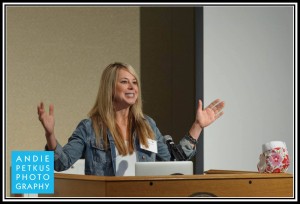 Happy Summer! We’ve got news and, more importantly, a call to action. Enjoy! And please share with others in your networks.
Happy Summer! We’ve got news and, more importantly, a call to action. Enjoy! And please share with others in your networks.
- When Work Works: It’s Time to Apply for the 2016 Awards!
- It’s Time to Speak Up: Why you need to get involved in improving work for all Oregonians – and how to do that
- Paid Sick Time in Oregon: The New Law
- Paid Family Leave: What does a good paid family leave program look like?
- Awesome Articles: Thought-provoking reads on equal pay audits, flexibility in manufacturing, and subsidized child care
When Work Works:It’s Time to Apply for the 2016 Awards
 The When Work Works Award acknowledges those employers who are making workplace flexibility part of their workplace policies and cultures. These employers have created effective, bold, and flexible workplaces and they are proving that flexible workplace practices can be effective in organizations of all types and sizes.
The When Work Works Award acknowledges those employers who are making workplace flexibility part of their workplace policies and cultures. These employers have created effective, bold, and flexible workplaces and they are proving that flexible workplace practices can be effective in organizations of all types and sizes.
Family Forward Oregon partners with the folks at When Work Works to bring this award to Oregon because we believe in rewarding flexible employers for their commitment to a way of working that really works for today’s families. And also, by highlighting the flexible workplaces in our midst, we hope to inspire others to follow suit. Being flexible isn’t just possible, it’s happening!
The When Work Works (WWW) Award provides a unique opportunity to showcase effective and flexible workplace strategies. When you apply for this award, you join a movement to build forward-thinking, flexible, family-friendly workplaces.
You can find more information about When Work Works here. Applications for the 2016 award open today Monday, August 17th.
When employers speak, people listen — especially our lawmakers. All of the workers in Oregon who don’t have access to basic workplace policies like paid sick time, predictable schedules, flexibility, or fair pay NEED you to speak up for policy change.
As an employer, you have more power than you might think to educate others about the importance of building people-friendly, equitable workplaces. You are uniquely able to talk about your efforts and successes in building workplaces that embrace the reality that most workers have ongoing family responsibilities — sharing how such practices help, not hurt, your bottom line.
 Here’s what Michelle Carver, a Vice President at gDiapers, has to say about testifying in support of paid sick time this past winter in the Oregon legislature:
Here’s what Michelle Carver, a Vice President at gDiapers, has to say about testifying in support of paid sick time this past winter in the Oregon legislature:
Last February, I testified in our state legislature about the importance of passing a statewide paid sick time law that would ensure all working Oregonians have the right to accrue and use paid sick time where they work.
I had never testified before, so I was a bit nervous. But the experience turned out to be empowering, liberating, and extremely educational. I actually felt like my voice was being heard — that as an individual I had the power to say something that sparked a new way of thinking among the people who are creating our laws.
And I definitely took notice of that fact that almost all of the business leaders speaking at the hearing were men who opposed paid sick time. Not only was I able to speak up as a supportive employer – but my voice as a woman from the employer perspective was unique and important.
I heard that in the overflow rooms (where people were allowed to make noise) people erupted in cheers when I was finished. For so many people, the idea of an employer that supports their right to earn paid sick time is a dream, not a reality.
That’s why more of us need to speak up.
Better yet, here’s the short video of Michelle’s testimony.
How can you speak up? Here are a few ways to get started:
- Share the story of your workplace. We can create a one-paragraph, one-page, one-image, or short video version that tells a story about how your workplace honors workers and how that affects you as an organization. We can both share it on social media, post it on our websites, etc.
- Highlight your good business policies in print or broadcast media. Our terrific partner, the Main Street Alliance of Oregon, has media opportunities and is always interested in connecting with new employers. Contact Iris Hodge at iris@mainstreetalliance.org.
- Host or attend a mixer with your legislator and other business or non-profit employers. The Main Street Alliance is coordinating informal gatherings – if you’re interested, contact Iris Hodge at iris@mainstreetalliance.org.
- Attend an advocacy training for employers. Learn how to talk to legislators, write letters to the editor, be a media spokesperson, or testify at public hearings. Date TBD – but let me know if you are interested and we’ll keep you informed.
I hope you’ll consider getting involved. You really can make a difference, and the people of Oregon need you to speak up. Please be in touch and we can work together to figure out a first step for you. You can reach me at sharon@familyforward.org or 503.928.6789.
Paid Sick Time in Oregon: The New Law
 One of the major accomplishments of this year’s legislative session was the passing of a paid sick time standard in Oregon. This law will ensure that workers across the state have access to at least a minimum of paid time off should they become sick, or need to care for a sick loved one. The law goes into effect on January 1, 2016.
One of the major accomplishments of this year’s legislative session was the passing of a paid sick time standard in Oregon. This law will ensure that workers across the state have access to at least a minimum of paid time off should they become sick, or need to care for a sick loved one. The law goes into effect on January 1, 2016.
Questions about the details of the law? Click here for an detailed overview (PDF).
Ask Family Forward | Paid Family Leave
Q: What does a good paid family leave program look like?
A: We’ve been getting asked this question a lot lately. Of course, there’s no single “right” answer – but we do think there are some key principles to keep in mind when creating a program at your workplace:
- Be inclusive: Build a policy that includes all of your employees. If you only offer paid family leave to upper management, it will breed resentment instead of buy-in and support.
- Define “family” broadly: The most successful policies cover not only maternity leave, but also cover other family obligations, like when an employee needs time to care for a dying parent, or a sick child, or a sibling, or…. yes, the list goes on. Ideally, a paid family leave policy will allow workers to identify their own important family members, including chosen (non-biological) family. It should also be available when workers are adopting a child or becoming a foster parent. And finally, it must be available to men as well as women. A broad policy will ensure that everyone is included, and also ensures that it won’t be seen as an unfair “perk” for mothers.
- Make it as long as possible: Some employers are able to offer up to six months of paid leave. Some only offer a couple weeks. More is better, if you can afford it. Most employers find that offering generous leaves pays off in the form of loyal, committed, employees.
- Really support employees using it: As we all know, many policies exist in the employee handbook but don’t get much use. Make sure employees understand the paid family leave policy. Encourage them to use it. Make sure you encourage men to use it, not just women. Make sure your leaders use their leave when they need to. All of this will communicate that there is no stigma in using paid family leave, and that using it will not hamper their advancement or standing.
Ultimately, paid family and medical leave should be a state program, like unemployment insurance, which will reach far more people in our state and dramatically reduce the cost to individual employers. Until we pass such a law, however, employers will need to do the best they can, knowing that their actions will help retain workers, build loyalty and morale, and demonstrate to policy makers that such programs are popular and effective.
Want to talk to local employers who have implemented a paid family and medical leave program? I can connect you with some – just let me know. You can reach me at sharon@familyforward.org or 503.928.6789.
Don’t Miss These Awesome Articles
 Thankfully, there is a lot being written about workplaces that work better for employees these days. Here are some of our recent favorites:
Thankfully, there is a lot being written about workplaces that work better for employees these days. Here are some of our recent favorites:
- Workflex and Manufacturing Guide: More than a Dream by Kenneth Matos and Eve Tahmincioglu. This new resource on flexibility in manufacturing has great information and highlights the Oregon company Lensbaby. You can find it here.
- Multnomah County audit questions equity of gender, minority wages, an Oregonian article on Multnomah County’s recent equal pay audit. Read it here.
- This Is The Most Brilliantly Simple Idea To Spur Economic Growth Aired At Davos So Far, by Jim Edwards in Business Insider. This article explores the economic argument for subsidized child care. Read it here.
Thanks for reading! We hope something caught your attention — and we invite you to share it with a friend.


